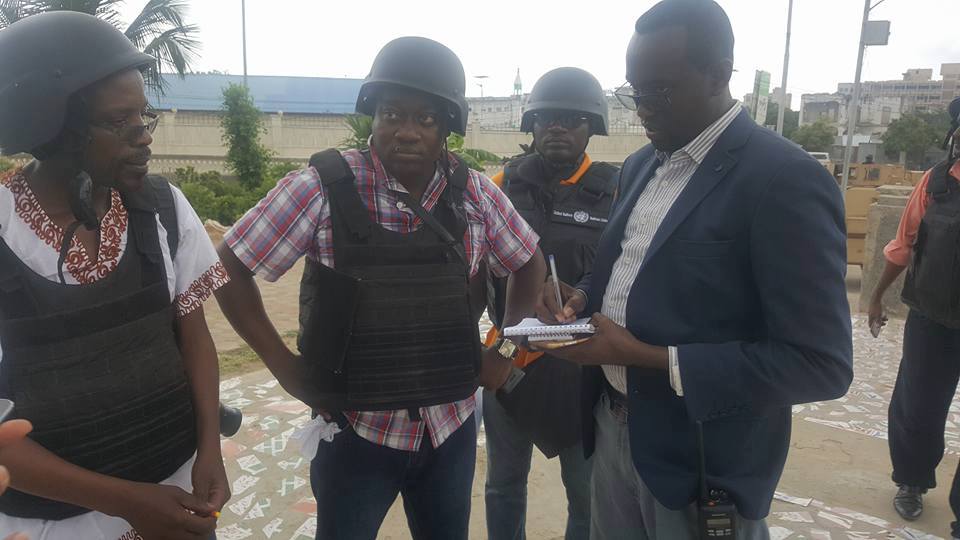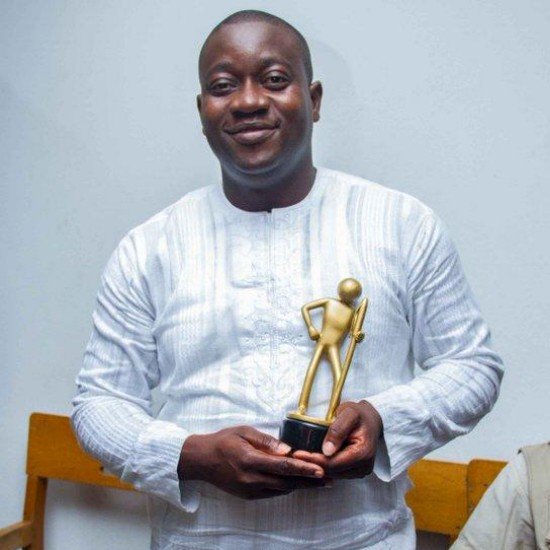Award-winning journalist, Seun Akioye recently resumed work as the Senior Media Officer of Abuja-based Centre for Communication Programs Nigeria (CCPN), which is focused on communication in social and behavioural change for development in Nigeria.
In a chat with Kelechi Amakoh of www.mediacareerng.org ,the former Assistant Editor, Investigations of The Nation speaks on why he left the newspaper, his new role at CCPN as well as the current trends in the practice of journalism in the country.
Excerpts:
In a country where some complain of no jobs, you just got a new one. How has it been since you assumed your new position?
It has really been exciting; my new position is very similar to the one I had at The Nation except that this is about interfacing with the media. I also cover events, like projects my office is working on, I go there to write about it and they are published on our website, www.ccpnigeria.org.
Yes, I know there is high level of unemployment in the country but there are still people getting very lucrative jobs. A lot of things would count in your favour. For example your skills, experience, the integrity and reputation you have built over the years and of course, God’s grace. These are the things that worked for me.
Why did you have to leave mainstream journalism with a top-rated newspaper?
I really did not plan to leave at the time I did. Every journalist must plan for his or her own exit right from the first by-line and luckily, the internet has provided ample opportunities for many skilful journalists to excel in many other fields but still within communication.
I have always had many other skills apart from writing stories, many of these were not deployed because of the pressures of the newsroom, but I know I have to do something more, there has always been that feeling that I could do more.
This job came without me looking for it. That is why I said the reputation you have built up in your career will either make or mar you. If you are renowned as a “brown envelope journalist” who will not move an inch without knowing how much they are paying, one day it will catch up with you.
One of the groups I have helped to write reports sent my name to this organization that was looking for a “good features writer, with the right attitude and levelheadedness,”. My name was passed across, I was asked for my CV and that was it. In 24 hours, the organization outlined their vision and where I fitted in perfectly. They asked me to join in making history and creating a new platform. I consulted with God, family, colleagues and mentor, then I decided to move.
I am by no way done with journalism, what I am doing here is still journalism but I am still going to be involved deeply even after leaving this assignment.
What was the best beat you covered while practicing and why?
I have not really been a beat reporter, I have done more of investigations and development reporting. But in the last 10 months since I moved to Abuja, I had been assigned the Defence beat.
It happened to be the beat that has given me the most satisfaction. Prior to that, I knew almost nothing about the military, but I learnt fast and in about six months, I became almost an authority and at the risk of being immodest, the number one defence correspondent in Abuja.
I travelled the country with the Nigerian Air Force, did so many features for the army and went to the Northeast many times. I became quite popular with the top military hierarchy and it has left, till now a very great impression on me as I ensure my children are now attending military school, I also live in the military estate. So Defence has been my best beat in my career.

What are the necessary requirements needed for journalists to bag awards?
From the top of my head I will say luck, but that will be hiding behind a finger. There are stories that you do that will most surely rank as one of the best. So to start, I will say your attitude to the job is the first thing you need to change if it is not positive.
If you are talented and skillful but have a bad attitude to work, you are going nowhere. A positive attitude will ensure you attack every story with your best shot. Don’t just do the basic and forget about it saying “after all, how much are they paying me.” It is your by-line; it is your name.
You need to be thorough; you must go beyond the ordinary, you must be above average. Random news stories will never get you anywhere, you must do better. Did you try to follow up a story you previously did? Can you think outside the box? I remember a former colleague who is now with CNN did a multi-dimensional story using her mobile phone, she went to Makoko very early in the morning, followed a particular family throughout the day, it was not easy, it wasn’t convenient but that story gave her an award that has changed her life.

Then you must do research. Say, you are doing a story on maternal mortality, after spending time in the hospital, perhaps witnessing some deaths, or following through a family, you have the human interest angle, then you speak to the doctors, then the Minister for Health. One would think, this is a good enough story. No, what is the World Health Organisation (WHO) saying about it, what is Nigeria’s international position. Even that is not enough, how are Nigeria’s neighbours in West Africa doing on the same subject, are they better? If yes, what are they doing that Nigeria isn’t?
Then on the continent, then globally. How will you get all these? The internet, this information is available free of charge but we are too lazy to do the research. Spend more time on that instead of posting unprofitable comments on social media. Follow international organisations on twitter not vain people.
Finally, get a good editor. I know the general editors may not have much time to mentor young journalists, but you can get an older, more experienced colleague to help you. He can give you direction.
What’s your take on the current downsizing, delay and absence of payments for long in several media houses?
It is really sad where the media industry has found itself, not entirely the fault of the media managers though. But it is also a wake-up call to many of us. While I was at The Nation, it never crossed my mind once that I could be sacked due to non-performance, or if there is a need to downsize, I will be affected.
Even if I was, I can never be stranded. This is because I have invested my time and skills in building myself professionally. Truth is that you must be able to bring more to the table than just “He said, they said.” If you are stuck with routine story coverage, you cannot do analysis, you cannot do a good human interest, you don’t even have nose for it, I am sorry things will be hard.
In 2000, I was with a newspaper called Eko Today. I accompanied a senior colleague to interview Femi Falana SAN on workers strike. We spent a long time with him, almost half the day. Now there was a page in our newspaper titled “A Day with…” where you spend some time with a public figure and write a comprehensive prose about how he works and live.
As we lingered in Falana’s place, I quickly began to gather materials for a day with Femi Falana. That week, my story was used while others were dropped. The senior colleague looked at me and said “You are really destined for this job.” How much was my salary then? N2, 500. But do you think the Eko Today Management would have sacked me if they had to downsize?
Never make it a habit of collecting brown envelopes, I know how hard things are, I faced difficulties in paying my bills too at some times, but put yourself far above the ordinary. Sometimes, have the courage to reject the money, walk home if you have to and do a very good story. You will be respected for that and when they are looking for quality people, they will remember you.
It has happened to me many times.
All my career, my salary has never taken me home, but I have never been completely stranded and I am not a brown envelope journalist. Truth is that we need to start looking beyond the salary, it is hard I know, but start now. Apply for that grant -and there are many of them now- apply for that fellowship, help that NGO write their report and you will not bother to wait to be disrespected after every press conference. If you apply and you are not taken, ask them for the assessment so you can improve on your weaknesses, next time, you will succeed.
Your worst moment while practicing journalism
I cannot say they are the worst moments, but say scary times. These are the times in my many investigative reports that I have had to go beyond myself and put myself in harm’s way. Talk about going on the high seas in chase of militants, going into a volatile and or hostile communities, or chasing after people who have escaped Boko Haram.
What’s your advice to prospective journalists?
I have said a lot in the previous questions, but I will just add -Make up your mind what you really want to achieve, if you don’t see the light at the end of the tunnel and you are just “managing” this job, it is not a crime, please resign. If you find that you cannot be completely loyal, despite the poor pay, please resign, don’t pull the roof over your own head.
Once you are still there, put in 101.1 percent, do everything in your power to turn out distinctive reports. In your beat be the go to man. Many may say, it is not easy, I have been there too so I know it is not impossible.

Wow! Inspiring story. You know, reading a story like things give prospective journalists like me, who is just a sophomore journalism student, hope that we can still make something out of journalism.
Inspiring, lovely, articulate…..bigger and better by the day.